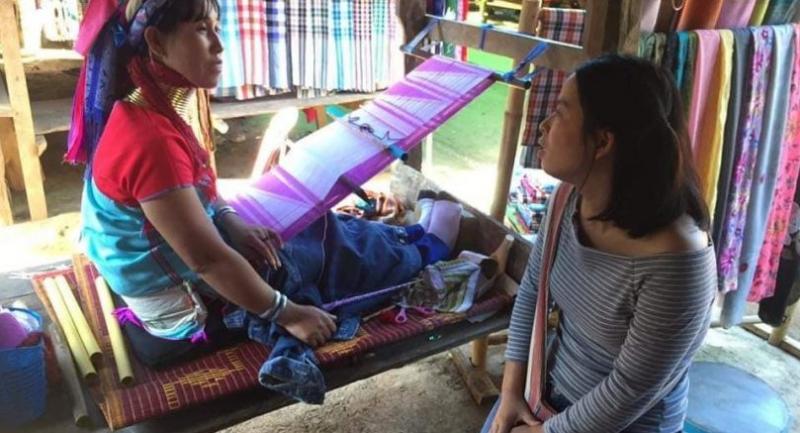Locals key to dealing with stateless issue

Up to 1.8 million people still do not have nationality; volunteers seen playing critical role
COMMUNITY empowerment is a sustainable solution for mitigating statelessness, human-rights group, International Justice Mission (IJM), said recently.
Khemachat Saksakunmong-khon, IJM field office director, said that even though Thai authorities were earnestly trying to solve the problem of statelessness, many stateless people in Thailand were still facing difficulties. He put this down to complicated nationality verification procedures and insufficient staffing in state agencies.
Khemachat was speaking at a talk entitled “New Life of Stateless” in Mae Hong Son last Friday.
“Since stateless people are normally descendants of ethnic minorities or refugees from neighbouring countries, and most of them live in remote areas, local authorities get overwhelmed with the number of nationality applications and do not have enough staff to deal with all. This is why each applicant has to wait for a year or more before becoming a Thai national,” Khemachat said.
“Moreover, nationality verification also requires documents such as the birth certificate and other supplementary documents to prove the applicant is eligible for Thai nationality. It is difficult for most applicants to provide these documents.”
As one of the civil-society organisations working on citizens’ rights and statelessness issues in Thailand, IJM has come up with a solution – recruiting and training local volunteers to help both the authorities and applicants.
“We are training local people in communities that have stateless people to understand the law and the procedure of nationality verification. This way, they can advise people in their community about nationality issues and help stateless people gather and prepare documents needed to apply for nationality,” he said.
“With the newly gained knowledge and skills, these volunteers can also lend local authorities a hand in dealing with applications and verifying the evidence, which makes the procedure faster.” Khemachat said that since the project began two years ago, more than 200 volunteers had already been trained and currently worked alongside stateless individuals in their community and related state agencies.
Aware of the problem
He pointed out that many of the volunteers were themselves stateless once, so they are well aware of the nature of the problem and are able to provide assistance to others.
The National Statistical Office estimates that up to 1.8 million people in Thailand still do not hold a nationality.
Kantaphong Chongphan, a local volunteer based at Ban Huai Khan in Mae Hong Son’s Muang district, said he was proud to help stateless members of his community gain their status and rights as Thai citizens.
“Every stateless person suffers due to the lack of nationality, as they are not entitled to fundamental rights and welfare, such as healthcare. They also lose many job and education opportunities, because these are restricted to Thai citizens only,” he said.
Kantaphong explained that many stateless persons were born in Thailand and were thus eligible for Thai citizenship from the first day of their life. However, many people living in remote areas are born outside a hospital, which means they do not have a birth certificate – the most important proof to show they are entitled to a Thai nationality.
He also said that mistrust between stateless people and officials caused by the language barrier was also another big problem, as many indigenous people cannot speak Thai.
Therefore, he said his work is to not just facilitate the nationality verification process, but to also help bridge the gap between indigenous people and the authorities.
